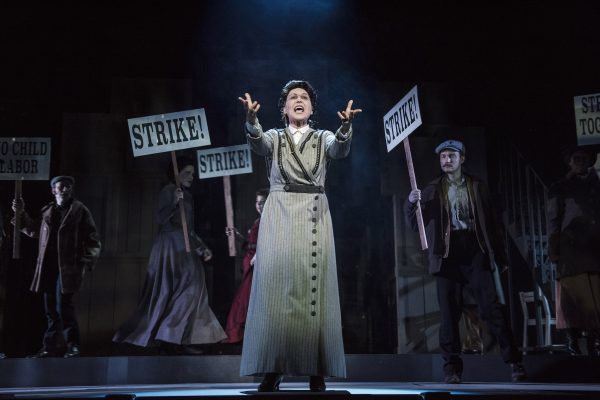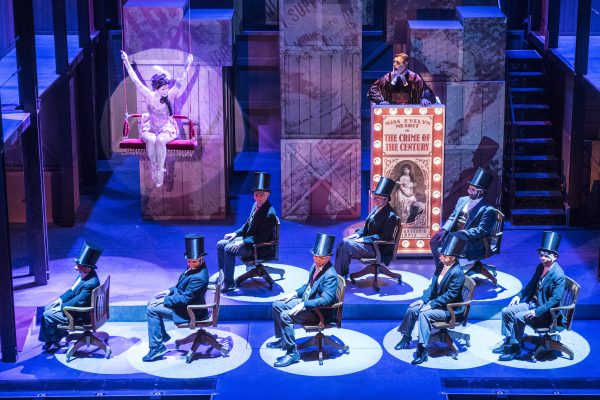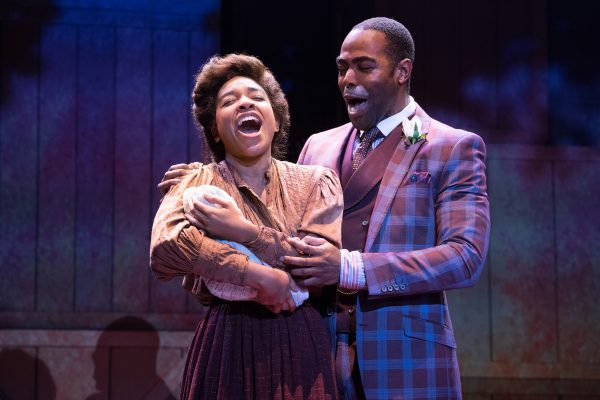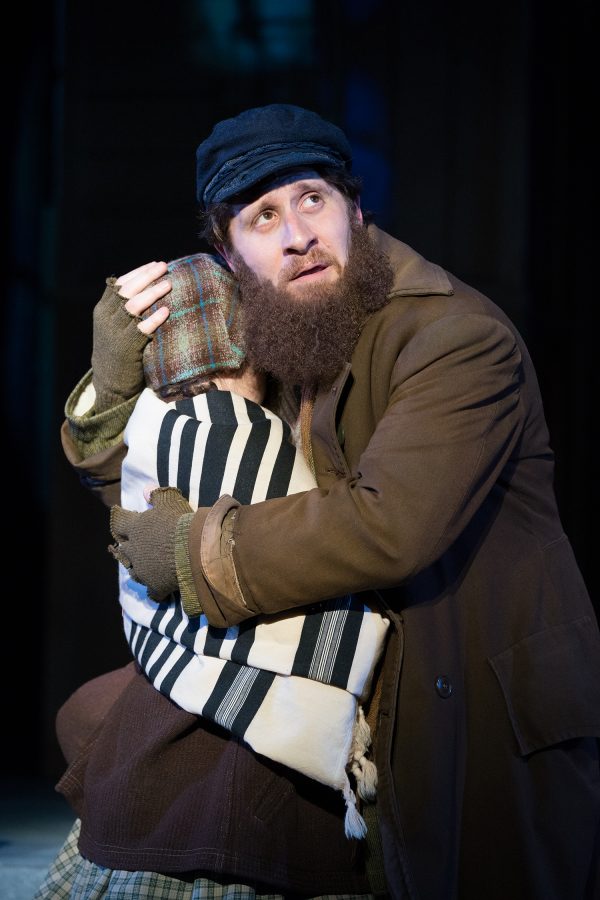Something pretty stunning is going on at The Pasadena Playhouse — and I don’t just mean Ragtime, the current production on its main stage that certainly qualifies. I also don’t just mean the heightened political relevance of this updated version of the 1998 musical, based on E.L.Doctorow’s novel, whose sweeping American landscape emerges as more relevant than ever. I’m talking about the emergence — or re-emergence — of The Pasadena Playhouse.
For the past 82 years The Pasadena Playhouse has carried the mantle of State Theatre of California like a heavy cloak: a designation for too long based mostly on longevity, given the theatre’s troubled history. But in the two years or so since Danny Feldman, a home-grown product of West Hills, took on the job of Producing Artistic Director for this survivor theatre, he has not only mapped his own path forward, but appears to have located the pulse of the place.

He’s found ways to connect it with the Pasadena community, as well as with the broader one of Southern California theatres. He also has successfully tapped into the wealth of Southern California talent. And his audiences are beginning to notice, because Feldman is finally attaching some solid artistic heft to that State Theatre title.
His 2017 Playhouse production of the Southern California premiere of Mike Bartlett’s King Charles III made a strong impression because, for the first time in a long time, there was abundant richness of all kinds on stage in a play that demanded it. The playfulness of his Pirates of Penzance didn’t hurt either. But it is with Ragtime, currently drawing plenty of attention, that one can see and feel a real step up.

The investment required by such an ambitious production might have scared off a lesser gambling man. The demands were all there: high budget, big show, strong material, superior talent, terrific singing, impressive design. But ultimately it is the depth of the experience that matters. This one stays with you.
Stephen Flaherty’s quasi-operatic score and Lynn Ahrens anthem-driven lyrics are a massive fit for the relatively small Playhouse stage. And the Terrence McNally adaptation of Doctorow’s panorama of America’s restive early 20th century, with its parallel stories of an entitled white upper middle class, empoverished immigrants from the shtetls of Eastern Europe, and the rising popularity of new African American music, plus the deadly bigotry lurking under it all, is a lot to deliver in a 648-seat house.
The nimble way in which McNally has synthesized the three-pronged elements of a complicated plot into a coalescing whole allows for much of the marvel. While “Father” (Zachary Ford) is off on an expedition to the North Pole, “Mother,” his wife (the lovely Shannon Warne), finds a live black infant under the flowers in her upscale New Rochelle garden. When the police show up, after having scared up the child’s distraught mother Sarah (Bryce Charles) and propose to arrest her and remove the baby, “Mother” spontaneously decides to assume custody of mother and child.

And that, a bit simplistically, is that.
In New York harbor, meanwhile, a ship has disgorged another boatload of tired immigrants that include the widowed Tateh (Marc Ginsburg), a penniless Latvian Jew, and his young daughter (lara Nemirovsky). Plots come together when Sarah’s lover and father of her child, the musician Coalhouse Walker Jr. (Clifton Duncan), meets with enough success to come searching for her, hoping to reunite and take care of her and their baby.

The three tightly woven strands of this story lay bare all that was and is good and bad about America. The events — appalling, knotty, tragic or uplifting — take a hard look at the wildly divergent conditions and perceptions that define the racial tensions and class distinctions in the society. It’s an ugly dance that persists to this day, tracking winding relationships and improbable convolutions that, in places, unavoidably, slow down the action.

Yet the audacity with which this all comes together can be laid at the feet of Feldman’s gumption and the deftness of director David Lee. The carefully chosen high level of talent of every performer in the company is a big part of making such an ambitious project succeed — especially when you consider that we get an additional dollop of period flavor from the peripheral presence of some well-known others: Emma Goldman (Valerie Perri), J.P. Morgan (Tom G. McMahon), Harry Houdini (Benjamin Schrader), Henry Ford (Ryan Dietz) and even the scandal-driven Evelyn Nesbit (Katharine McDonough) on her swing.
Despite the implicit strain of fitting a 21-person cast (reduced from the original 48) on a set that demands other complex accommodations, the show’s vitality is unflagging. The resourcefulness of director Lee and scenic designer Tom Buderwitz manages to fit them all in, with the right assistance from choreographer Mark Esposito, a swell array of costumes from Kate Bergh, plus lights from designer Jared A. Sayeg and balanced sound from Philip G. Allen.

Could the show benefit from a little less rather than all this more? Yes, it could. It also probably could do with one fewer triumphant or sentimental anthem or two. But the overall achievement cannot be denied.
In a letter to his audience, Feldman is not shy about saying that everything we see originated at the Playhouse — “on campus” as he put it — from the rehearsal of the actors and the 16 musicians, to the construction of every other aspect of the production.
This Ragtime is more than the revival of a show that deserves it; it points to the promising re-awakening of a gem of a Playhouse after an overlong and very fitful struggle simply to survive.
How can we not rejoice?
Top image: The ensemble cast of Ragtime at The Pasadena Playhouse. Photo by Nick Agro.
WHAT: Ragtime
WHERE: The Pasadena Playhouse, 39 So. El Molino Ave., Pasadena, CA 91101.
WHEN: Tuesdays-Fridays, 8pm; Saturdays 2 & 8pm; Sundays, 2 & 7pm. Ends March 9.
HOW: Tickets start at $25, available online at PasadenaPlayhouse.org, by phone at 626.356.7529 or in person at the box office.
RUN TIME: 2 hrs, 15 minutes with an intermission.
PARKING: Underground across the street & various nearby lots.
